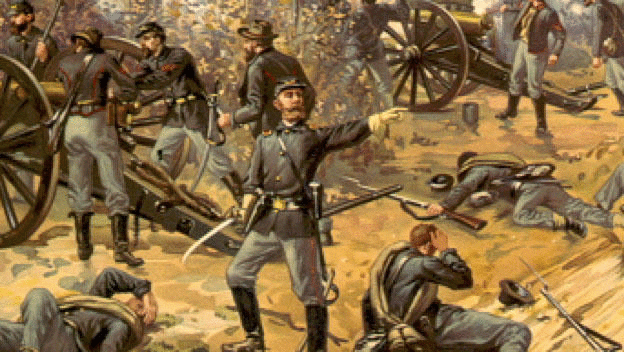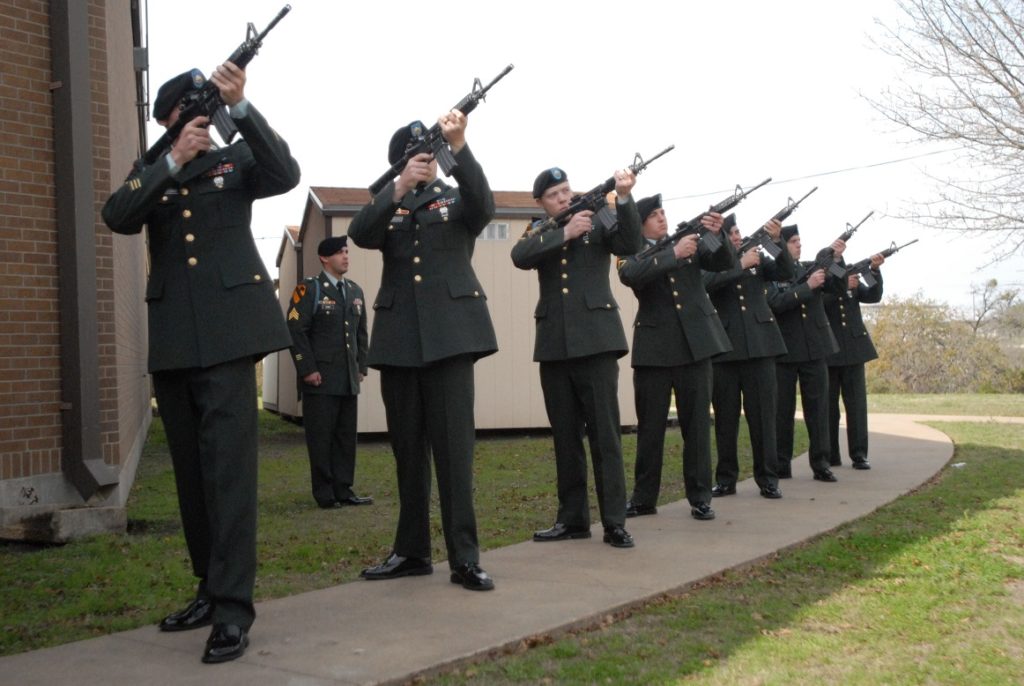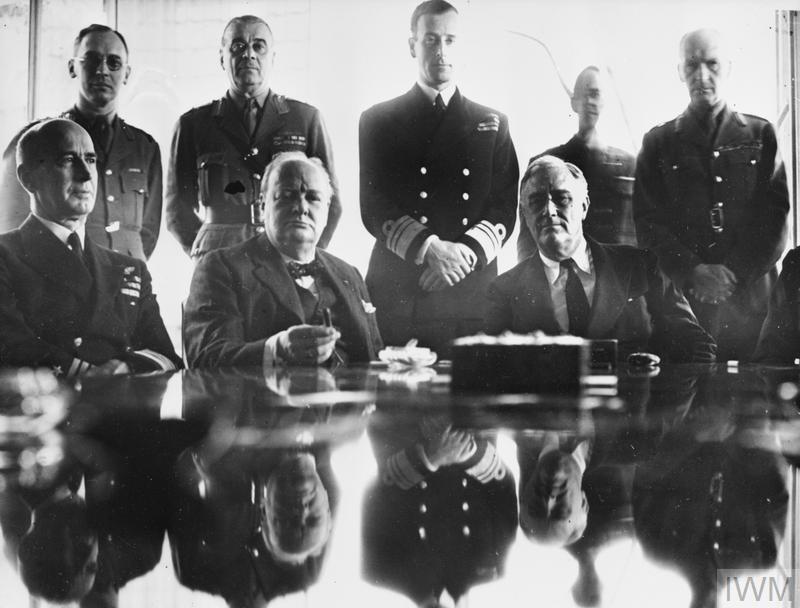By Paul Evancoe
July 16, 2020
In 1862 during the Civil War Battle of Shiloh, after several days of fighting and maneuvering against the rebels, the forces of Ulysses S. Grant found themselves at a tactical disadvantage. They were outnumbered by Confederate forces and they had their backs to the Tennessee River with no clear means of escape. One of Grant’s senior officers, Col. McPherson, suggested that they might be able to cut their losses and retreat under the cover of Union gunboats across the river on wooden steamboats, if they did it quickly. Grant quietly sized up McPherson and calmly replied, “Retreat? No. I propose to attack at daylight and whip them.” And, the next morning that is exactly what the Union forces did.
That is an example of what the military still refers to today as “Commander’s Intent.” Commander’s intent is clear concise guidance – guidance that has no ambiguity. It is direction that everyone understands. It epitomizes the grandest principles of leadership.
On September 12th, 1962 (and I remember watching this live on a black and white TV), President John F. Kennedy gave his famous speech that got us into the space race against the Soviets. This speech in particular, is a superb example of Commander’s Intent. Standing at the podium he firmly grasped both sides. “We choose to go to the moon,” Kennedy proclaimed in his characteristic New Englander’s accent. “We choose to go to the moon in this decade and do all the other things, not because they are easy, but because they are hard, because that goal will serve to organize and measure our best energies and skills, because that challenge is one that we are willing to accept, one that we are unwilling to postpone, and one which we intend to win, and the others, too.”
What both the Grant and Kennedy examples have in common is that they are mission focused and designed to create unity of effort. Parallels may be made by watching a school of fish swim or a large flock of birds fly. Somehow, they have unity of effort, and acting like a single being, they all seem to change direction and turn at the same moment. They act, and even look like a self-morphing yet purposeful being. We can only wonder if they have a leader or, how they all just somehow know what direction to go at exactly the same moment.

Man is a tribal being. Mankind has evolved that way and we are all wired that way no matter how sophisticated we think we are, or how many advanced degrees we hold. Some examples of our tribal roots can easily be observed whenever we deal with events we don’t understand and/or feel threatened by.
Take 9/11 for example. During and following the World Trade Center and Pentagon attacks people banded together. There was a sense of unity, a sense of purpose. It was us against those who attacked us. Shortly following the attack, President Bush proclaimed to the world on national television, “In our pursuit of those responsible in this fight against terrorism, you are either with us or against us.” It was classic Commander’s Intent – “you’re either with us or against us.” Make your choice.
Do you remember all the public gushing of Americanism following the attack? American flags were displayed everywhere. Flags of all sizes were hung on many buildings, on bridge overpasses and everyone had a flag flying from a small banner clipped to his car window. It was a time of great national unity. Do you remember hearing anything from the agendas of liberals, conservatives, Democrats or Republicans? No – there was a singular mindset – a tribal mindset, and that tribe was the United States of America.
Here’s another example. If you look anyplace on our planet where people are geographically isolated, and lacking infrastructure ties to the population centers, you will find clans. Afghanistan is an excellent modern day example, as is the Middle East as a whole, which shares religion-based clanship. Due to the rugged geography, so might be parts of Kentucky and West Virginia, especially during the 1800 and early 1900’s. Even today they are clannish. Unlike large population centers, the terrain of these rural locations lends itself to isolation by retarding easy transit. Infrastructure is largely lacking. The people who inhabit these areas reside in small semi-isolated pockets. Hence, clanship flourishes.
This is not necessarily bad. In fact, it might be explained as our tribal roots – we are wired that way and it is nothing of which we should be ashamed. We are after all, simply human. But there is for many of us a painful side to being human, and that is our failure to recognize and act upon success. There’s a difference between failing (which is a natural and normal part of life) and being addicted to failure. When we’re addicted to failure we enjoy it. Each time we fail, we are secretly relieved. For example, Hollywood’s culture glamorizes failure and embellishes victimhood. Starving poets, romantic suicides, America-hating and other self-defined victimized souls invert failure and warp it into a perverted success. In truth, it results in cultural incapacity, so that we no longer have to ask and answer Stanislavsky’s famous questions: Who am I? Why am I here? What do I want?

See more by Paul Evancoe: The 21 Gun Salute
Becoming one’s self means becoming authentic. It means striving to become better than yourself. It means defining your individual worth and identity, and not leaving it to others to define for you. It means making good people into better people, not the reverse. We should never fear self-definition; we should celebrate it. We should not wait for inspiration; we should practice our lives in anticipation of it. Practice is the key. Practice means following a rigorous, prescribed regimen with the intention of elevating the mind and the spirit to a higher level. Practice implies engagement and belief, and without them there can be no Commander’s Intent.
Reporting by today’s agenda-driven media cannot be trusted. Politics is more polarized and less honest than ever in our country’s history. The American culture is under attack from within. If we could write a Commander’s Intent on behalf of the USA, perhaps it would go something like this: “Give countenance to no act of national dishonesty. Advocate no wrong, defend no error, deny no truth, for the sake of party or personal interest.” We must never forget who we are and what we are. As veterans and patriots, we must practice.
Honorable mention: I want to credit my friend Steven Pressfield for many of the words you have read in this article. Steven is a bestselling novelist who has written a number of excellent titles based on historical fiction. A few years ago he published a non-fiction book titled, “Turning Pro” which I have adopted into my own philosophy about “getting things done.”
EDITOR’S NOTE: We are again proud and honored to be able to publish one of Paul Evancoe’s outstanding pieces of original prose here at milvetsandpatriots.com. It is a privilege to be associated with him. You can check out his impressive bio on his first post with us, The 21 Gun Salute. Mr Evancoe does not participate in social media commenting, but if anyone has a question or concern that they would like to direct to him personally, please submit using our Contact page, and they will be forwarded.
